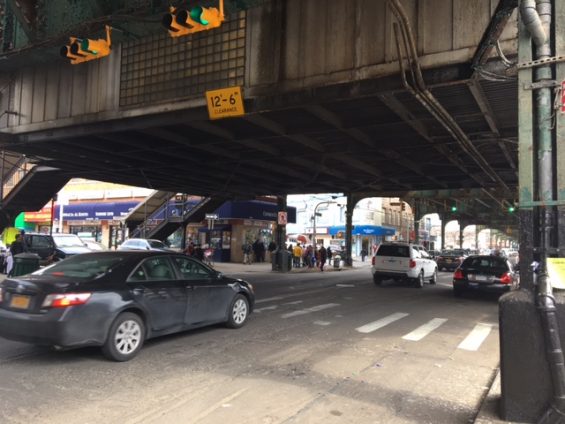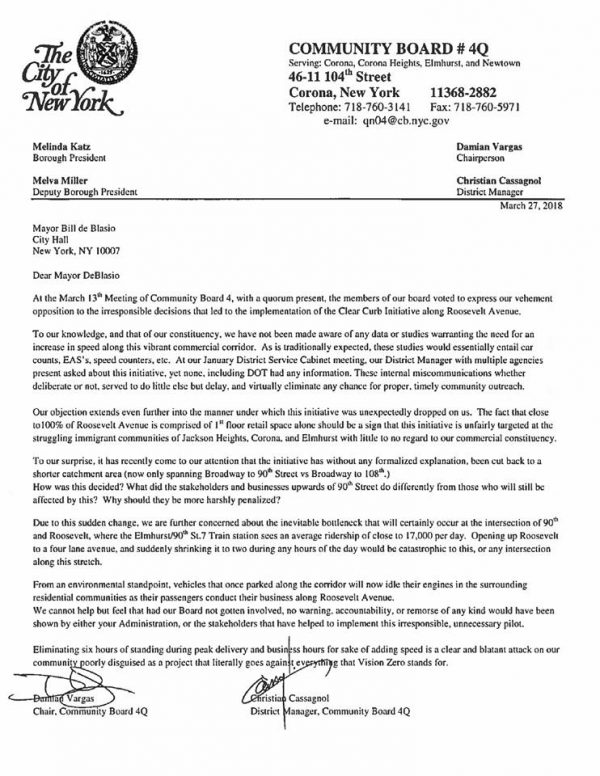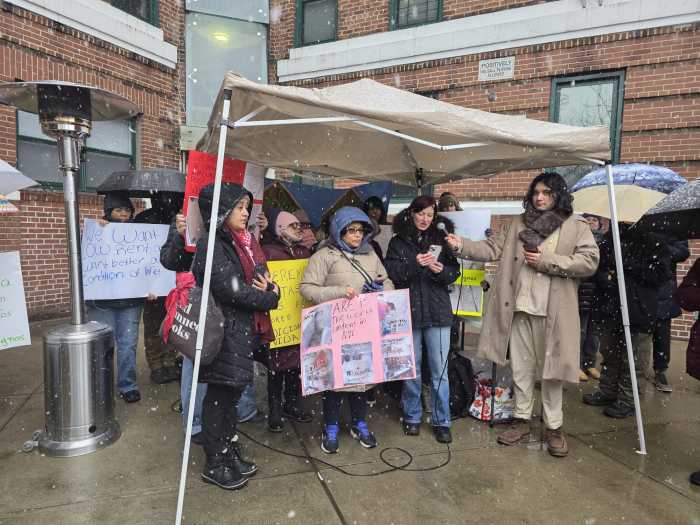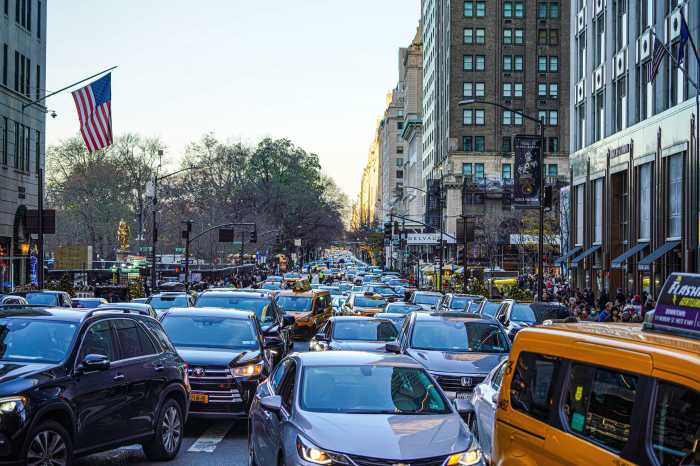
Roosevelt/90th Street (file photo)
April 18, 2018 By Christian Murray
The Department of Transportation is facing heavy criticism from business leaders, Community Board 4 and Councilmember Francisco Moya over the implementation and results of its Roosevelt Avenue ‘Clear Curbs’ program.
The program, which started March 19, prohibits cars and delivery trucks from standing on both sides of Roosevelt Avenue—between Broadway and 90th Street–during rush hour periods. The restrictions take place from 7 a.m. to 10 a.m. and 4 p.m. to 7 p.m. on weekdays and aim to limit congestion and help move traffic at a faster pace.
The program is a “pilot” with the DOT assessing its impact in six months.
But business leaders and community representatives have already made an assessment—the plan’s a dud. They claim that it has hurt business and that its implementation caught business owners by surprise. For example, many business owners learned about the program from seeing vehicles being towed, they said.
Residents who live on streets near Roosevelt Avenue are also upset by increased traffic.
“I continually hear from local business owners and residents who are outraged over Clear Curbs,” said Councilmember Francisco Moya in a statement. “The parking ban is flooding the residential side-streets in Jackson Heights and Elmhurst with cars and trucks—which creates new traffic hazards.”
Leslie Ramos, the executive director of the 82nd Street Partnership, said that the business community is strongly opposed to it and a survey her organization is conducting proves it.
“We have already spoken to at least 50 businesses as part of the survey, and they all oppose it except for one,” Ramos said. “Most say that sales have declined—and it’s not just restaurants and retailers saying that…but lawyers and insurance people.”
She said that business owners are complaining that their customers are unable to park, time-sensitive deliveries can’t be made and that employees who live elsewhere struggle to find parking.
Moya also viewed the program as bad for business. “It’s disrupting deliveries and killing foot-traffic during peak hours.”
Moya claimed that the DOT also did a poor job notifying and consulting the public as to its plan.
“At no point did the DOT manage the Clear Curbs rollout appropriately or respectfully,” he said. “From the beginning, it was obvious to me and the community that this initiative was going to hurt the area.”
The DOT, however, claims that it did provide adequate public notification.
The agency said it held briefings with officials and stakeholders in December to let them know about the program, and then attended a joint CB3/CB4 Transportation Committee meeting on Jan. 17 to discuss the pilot and get feedback.
The DOT said that the Queens Borough Commissioner’s office contacted several elected officials on Jan. 26 via phone and e-mail to solicit feedback.
The DOT also said it sent out “street ambassadors” who canvassed the neighborhood along Roosevelt Avenue for the first two weeks of March—prior to the March 19 implementation. The ambassadors “distributed fliers door-to-door about the program to businesses, as well as solicited their feedback,” according to the DOT. “During this outreach DOT did receive some positive feedback from several businesses about the pilot.”
“The DOT also met with concerned BIDS—including the 82nd Street BID—on March 13 and presented the pilot initiative to Community Board 3’s full board on March 15th at which CB4’s District Manager was in attendance.”
Christian Cassagnol, district manager of CB4, acknowledged that the DOT spoke at the Transportation Committee meeting in January but said most knew nothing about the program until the week before its implementation.
Cassagnol also said that the DOT never did a proper survey of the businesses. “It’s only now that a proper survey is being done,” he said, and it is being done by the 82nd Street Partnership.
Cassagnol said the DOT should have done a proper survey before the plan was implemented. Furthermore, he said, the DOT never provided any data or studies indicating there was a need for the program in the first place.
CB4 condemned the plan in a strongly worded letter to Mayor Bill de Blasio. It read, in part, that “members or our board voted to express our vehement opposition to the irresponsible decisions that led to the implementation of the Clear Curb Initiative along Roosevelt Avenue.”
The letter said that “this initiative is unfairly targeted at the struggling immigrant communities of Jackson Heights, Corona and Elmhurst with little to no regard to our commercial constituency.”



































